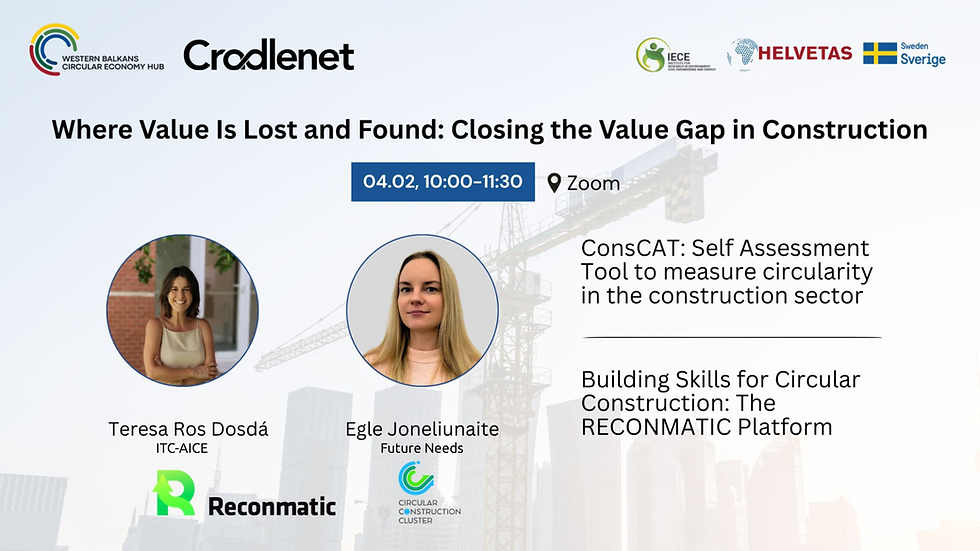University of Salford PhD Students Showcase Innovation in Construction Waste Management at SPARC2023
- Jul 6, 2023
- 2 min read
SALFORD, UK - At the recently concluded Salford Postgraduate Annual Research Conference (SPARC2023), Ali Saad and Olumide Fasanmi, two doctoral candidates from the University of Salford, presented groundbreaking advancements in the realm of construction and demolition waste management. Their innovative research on digital technologies, an integral part of the RECONMATIC project, stood out amongst several scientific papers presented.
The conference, held on Wednesday 5 and Thursday 6 July 2023 at the Chapman Building on the University's Peel Park campus, gathered an impressive crowd both in-person and through its live streaming platform. This year's theme, "Better to illuminate than merely to shine," resonated deeply, reflecting the importance of disseminating knowledge and enlightening peers with research contributions.
SPARC2023 provided a rich blend of keynote addresses, workshop sessions, and research presentations. Topics ranged from the fascinating world of Zines, the evolution of research platforms at Salford, the nuances of shaping one’s online academic presence, to intellectual property rights for researchers. Parallel research presentations from a plethora of postgraduate researchers encompassed diverse subjects such as health interventions, cybersecurity, lived experiences, and changing societal attitudes.
Ali Saad: The Future of DIMS in Waste management

Ali Saad's presentation at SPARC2023 focused on the development of a Digital Information Management System (DIMS) that integrates various information and communication technologies to support circular economy principles in construction and demolition waste management. Ali emphasized the importance of integrating digital technologies such as Building Information Modeling (BIM), Machine Learning (ML), Blockchain, and the Internet of Things (IoT).
By leveraging these technologies, Ali aims to create a comprehensive system that facilitates the efficient management of construction and demolition waste throughout the entire lifecycle of a project. The DIMS will enable real-time monitoring, data collection, and analysis to optimize waste reduction, recycling, and repurposing efforts. The integration of digital technologies will streamline processes, improve decision-making, and promote sustainability in the construction industry.
Olumide Fasanmi: Navigating the End-of-Life Phase of Materials

Olumide Fasanmi delved into the intricacies of developing end-of-service-life datasets for construction materials and products, underscoring the significance of 'material passports' to obtain critical information for materials and products during the construction and demolition phases.
By developing comprehensive datasets, Olumide aims to address the lack of standardized information regarding the end-of-life phase of construction materials. These datasets will provide valuable insights into the recycling potential, environmental impact, and reusability of various materials and products. By creation of validated datasets, stakeholders in the construction industry can make informed decisions, enhance resource efficiency, and promote sustainable waste management practices.
A Brighter Horizon for Construction
Saad’s and Fasanmi’s contributions to the RECONMATIC project consortium underline the University’s dedication to cutting-edge solutions in the construction domain that resonate with real-world challenges. By harnessing the power of digital technologies and promoting sustainable waste management practices, the RECONMATIC project aims to transform the construction industry and pave the way for a more sustainable future. As the globe grapples with environmental challenges, RECONMATIC’ s automated solutions might well form the cornerstone of a sustainable construction paradigm.
For more information on the role of the University of Salford in the project, visit: https://www.reconmatic.eu/partners
For a detailed recap and insights from SPARC2023, visit https://www.salford.ac.uk/postgraduate/events/salford-postgraduate-annual-research-conference.


